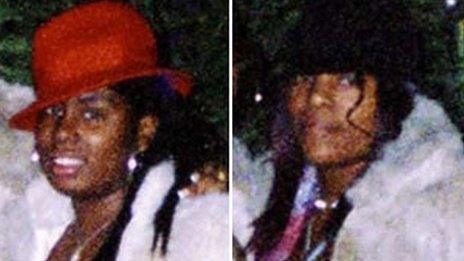Aston shooting victim Letisha Shakespeare's mum continues campaign 20 years on
- Published
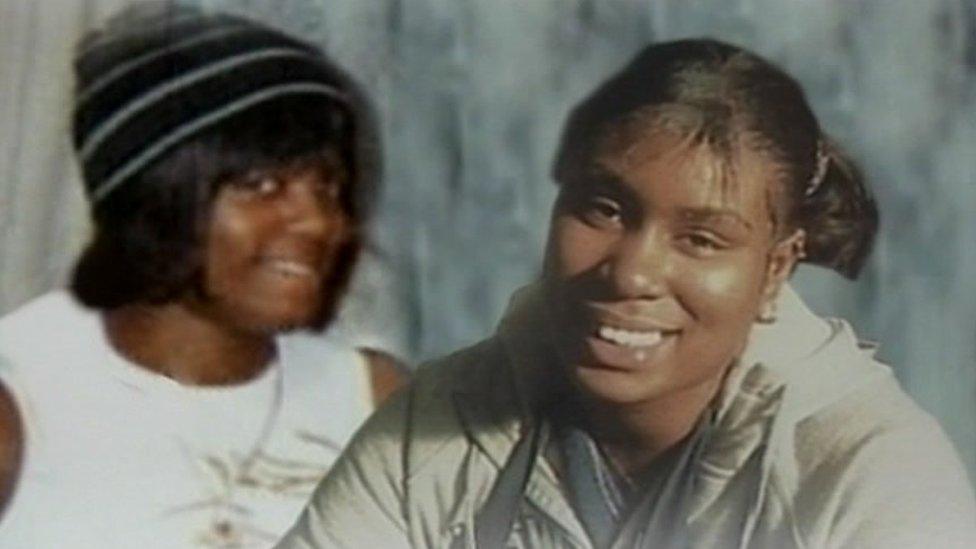
Charlene Ellis and Letisha Shakespeare had been attending a new year party when they were shot dead
Twenty years ago, two teenage girls were killed as they stood outside a new year party.
The killings of Letisha Shakespeare and Charlene Ellis sent shockwaves through the city of Birmingham and beyond, and led their families to dedicate themselves to campaigning against gun and gang crime.
In the parish church of Aston in Birmingham, murals lie on the marble floor marking the murders.
Letisha, 17, and 18-year-old Charlene died on 2 January 2003. They were the innocent victims of a botched drive-by shooting as rival Birmingham gangs fought out a brutal turf war.
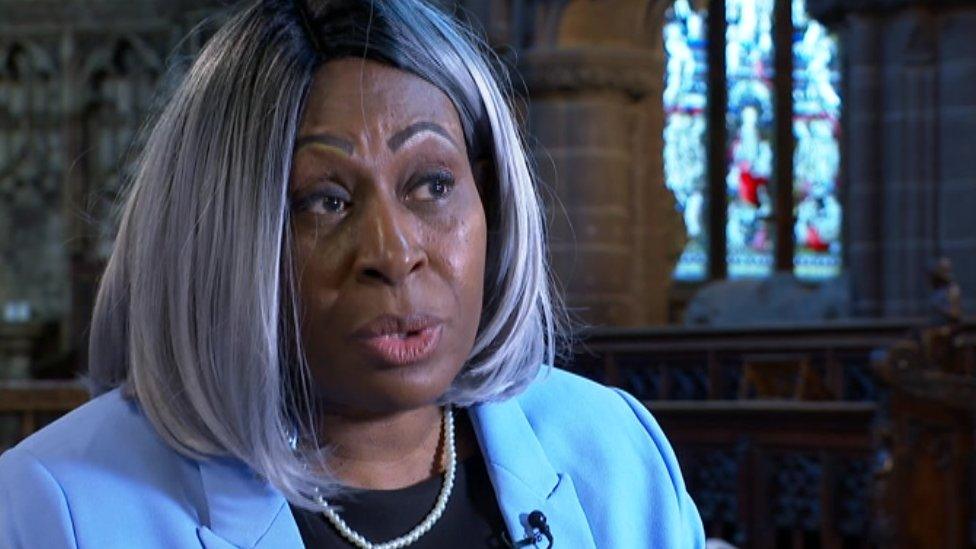
Dr Shakespeare started a charity in her daughter's name - the Precious Trust
Charlene's twin sister Sophie, their cousin Cheryl Shaw and friend Leon Harris were also injured.
Letisha's mother Dr Marcia Shakespeare MBE said she still could not believe two teenage girls could be killed by gunmen armed with a Mac-10 sub-machine gun.
"It just seems impossible," she said.
"I just couldn't sit back without making people know the seriousness of taking Letisha's life."
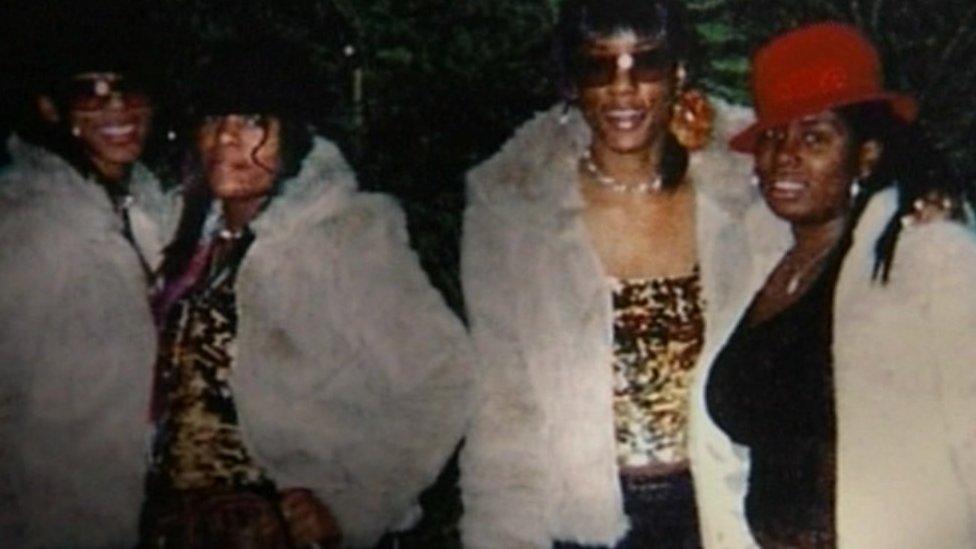
Letisha and Charlene were killed while Charlene's twin sister Sophie and their cousin Cheryl Shaw were injured
Since then, she has been campaigning - first for justice for the girls, and then against violent crime.
In 2005, four men were convicted of the murders in a trial which became the longest in English criminal history and the first to allow evidence from anonymous witnesses.
Dr Shakespeare was one of the first to stand up against the gangs and those with guns.
"The only person I do fear is God himself, definitely not individuals in regard to what they've done. And many people said wrong place, wrong time, but what happened on January the second 2003 was out of control," she said.
"Whatever gang wars, they were willing to kill anything or anyone in that site - the only difference was it was my daughter Letisha."
She has released a new picture of her daughter as an eight-year-old celebrating Christmas.
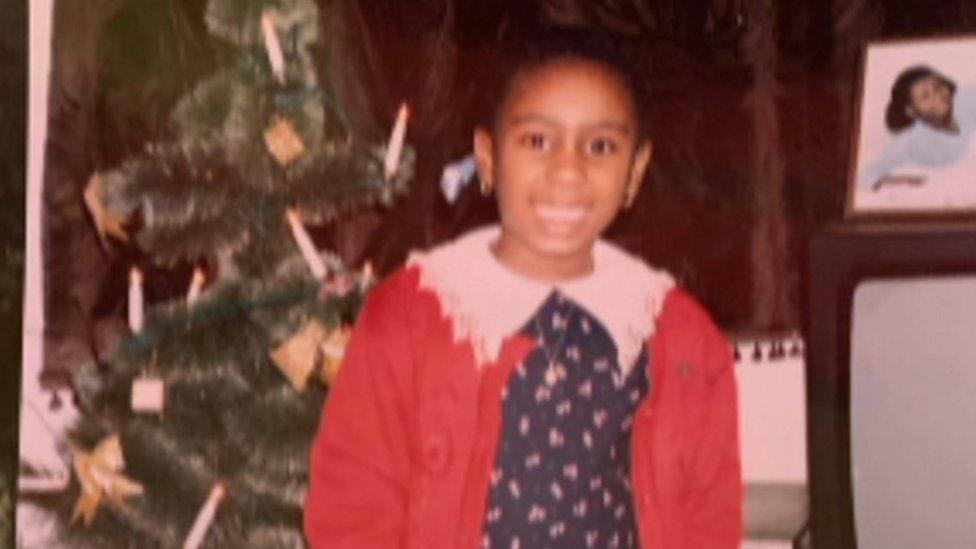
Dr Shakespeare has released a new photograph of her daughter Letisha as a child
She started the Precious Trust in 2012 - her daughter's middle name was Precious - to give girls and young women a route away from gang violence.
Over the past 20 years, Dr Shakespeare has also spoken to more than 100,000 young people about the dangers of gangs and gun crime.
In 2003, Birmingham had one of the most hardened gang cultures in the UK, with up to six shootings a day.
But in the years that followed, offences dropped, with just 15 recorded in December 2011.
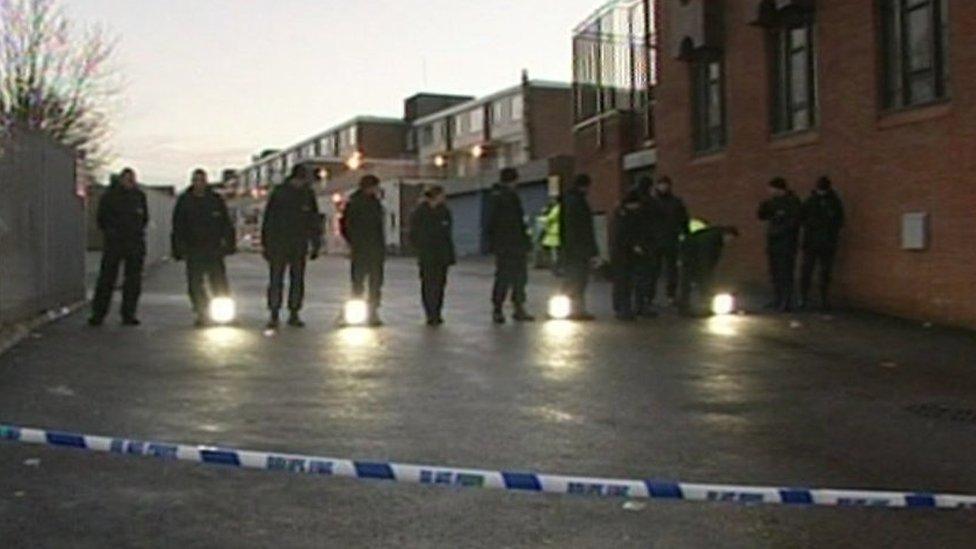
Four men were eventually jailed for the murders
More recently, figures from West Midlands Police show that from 1 March 2020 to 31 March 2021, there were 753 firearm offences recorded in the force area - covering dozens of types of crimes, external.
"Knowing it's not gone away is why I continue to campaign," she said.
Dr Shakespeare said she feared the cost of living crisis could lead to a new rise in violence - with the increasing threat of poverty driving some people to crime.

Follow BBC West Midlands on Facebook, external, Twitter, external and Instagram, external. Send your story ideas to: newsonline.westmidlands@bbc.co.uk , external
Related topics
- Published31 December 2016
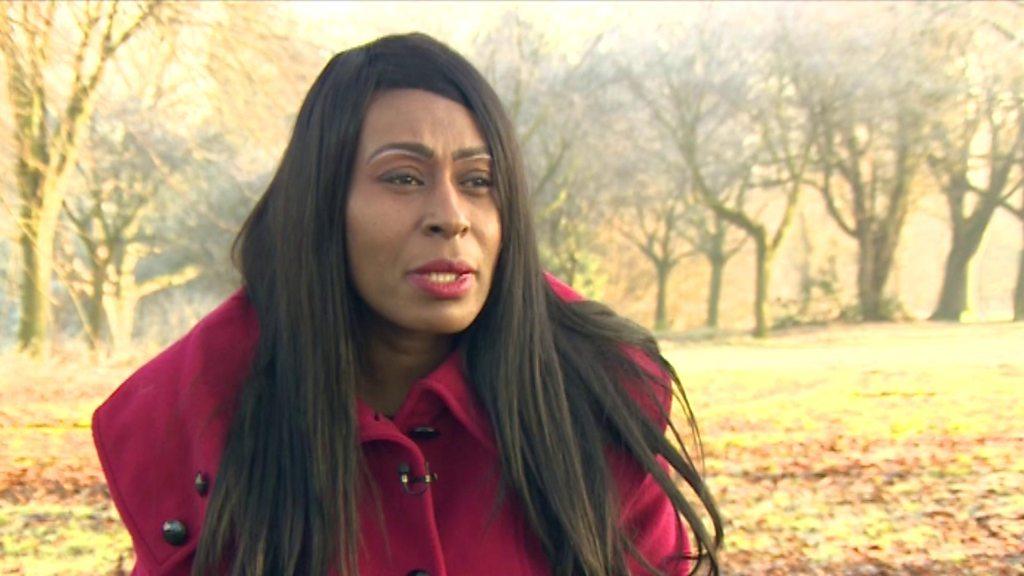
- Published2 January 2013
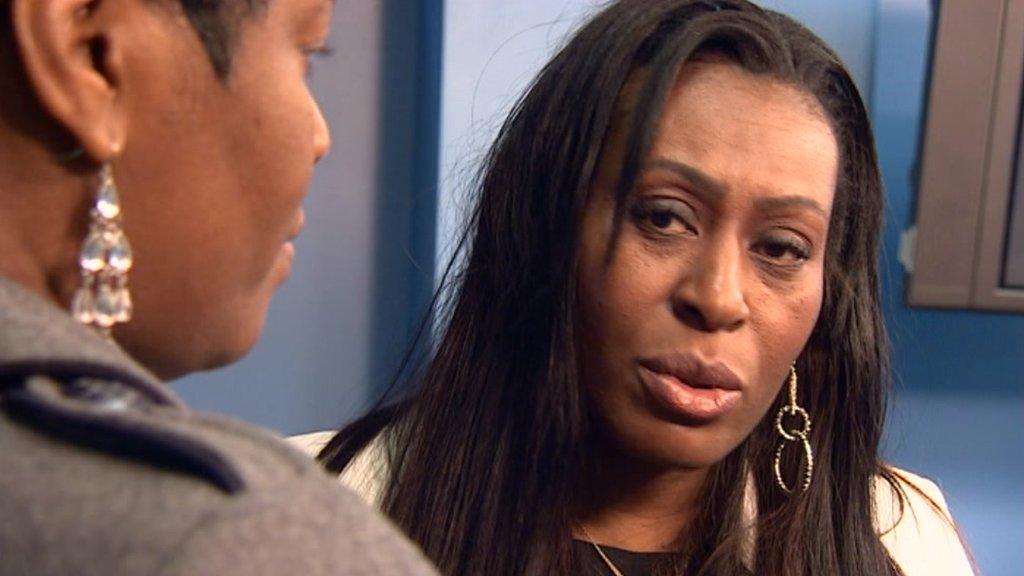
- Published22 May 2012
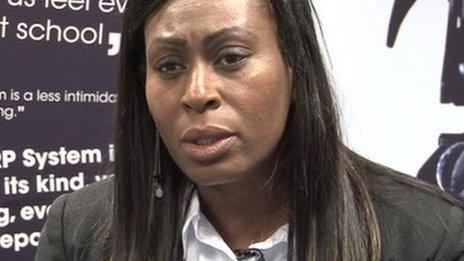
- Published26 April 2012
